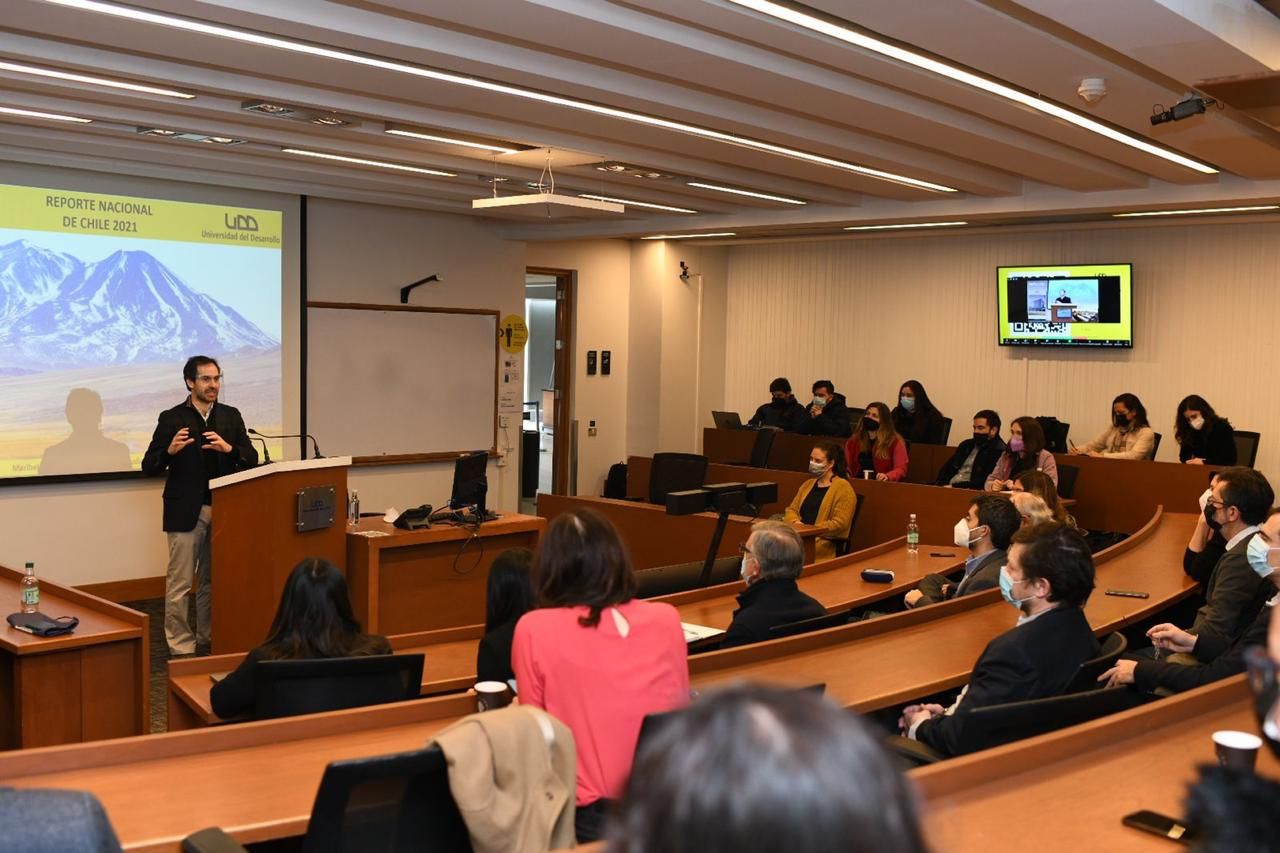In Chile, 80% of entrepreneurs say that they consider social and environmental factors when defining their business strategies. In addition, 79% of the Chilean population sees entrepreneurship as a desirable professional career option. These were among the findings from the latest GEM Chile National Report that were discussed at a launch event on 18 July.
The report was published by the Entrepreneurship Institute of the Faculty of Economics and Business (FEN) of the Universidad del Desarrollo (UDD), in collaboration with seven prestigious institutions in the country.
In introductory remarks at the launch event, Matías Lira, Dean of FEN UDD, stated: “One of the particular points of emphasis of the university is to promote an entrepreneurial mindset that translates into real entrepreneurial action within the academic community. That is why, year after year, we are proud to celebrate those who set an example on how to be entrepreneurial not only with a focus on profit, but in a broad way to benefit generations."
Nicolás Grau (pictured above), Minister of Economy, Development, and Tourism, also addressed the audience at the launch event, highlighting how the main results of the report can be linked to pro-entrepreneurship policies and the importance of having better data to support decision-making.
"When we look at what has happened over time with established female entrepreneurs, we can see that the activity of men and women fell in 2020, but unlike men, who have already recovered their levels of activity, women have not,” the Minister said. “It is key to look at what the explanations are and if there is any public policy to reverse this situation. Thanks to this report, we can make comparisons with other countries that can shed light on the reasons.”
Maribel Guerrero, co-author of the report and FEN UDD researcher, shared with participants how the results underscore signs of recovery following the initial disruptions caused by the pandemic.
“The effects of the pandemic were one of the main reasons for business discontinuation,” she explained. “The number was 62% in 2020 and dropped to 35% in 2021.”
The GEM Chile project uses two questionnaires for data collection: the Adult Population Survey (9,407 respondents between 18 and 64 years old, distributed in the 16 regions of the country) and the National Expert Survey (sample of 412 people from nine regions, who provide information on the nine environmental conditions set out in the project). In addition to Guerrero, Tomás Serey and Claudia Yáñez-Valdés were authors of the report.
Access the full report and additional analysis in a CNN Interview as well as in a feature article in the El Mercurio newspaper.

